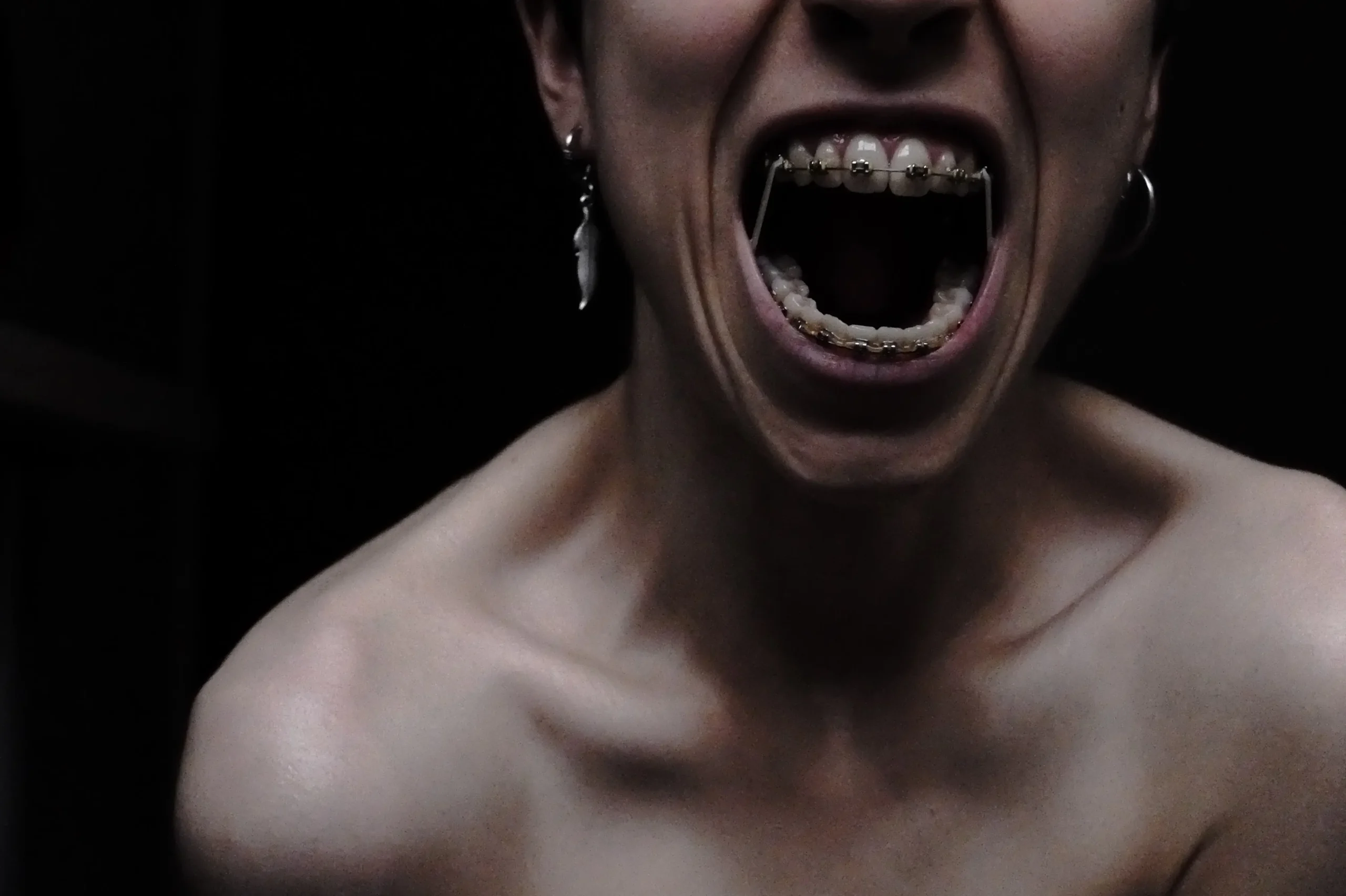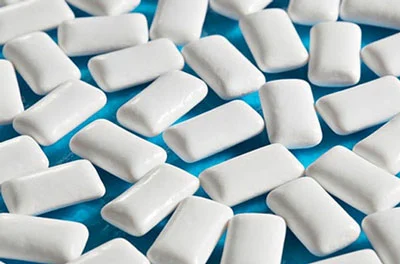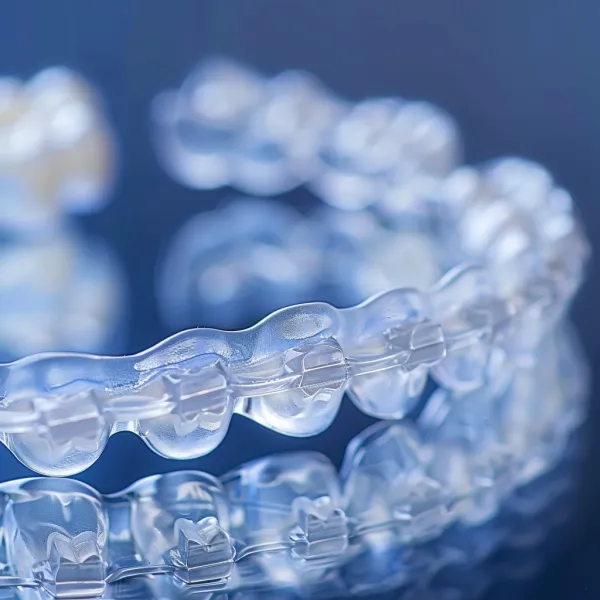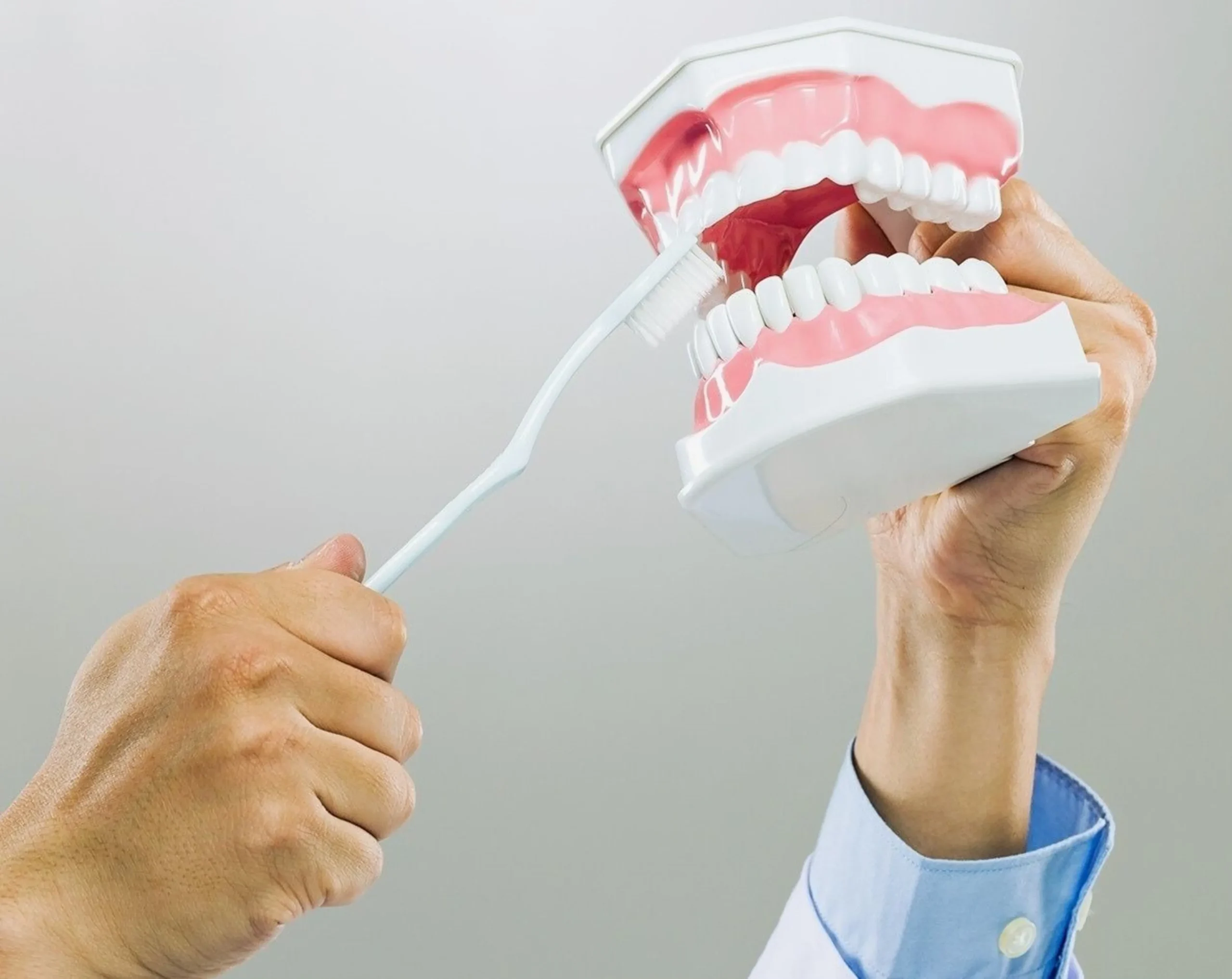Chewing gum is a popular pastime that many people enjoy for its breath refreshing and stress-relieving benefits. Chewing gum, on the other hand, can be difficult for those who wear braces. Gum residue can become lodged in brackets and wires, making cleaning difficult and potentially causing tooth rot. Chewing gum can also cause braces to crack or flex, causing brackets to break or wires to bend. This post will share tips and tricks for chewing gum safely and comfortably while wearing braces.
Importance of Oral Hygiene While Wearing Braces
Those who wear braces must practice good dental hygiene. Braces increase the number of sites where food particles and plaque can gather, leading to tooth decay and gum disease if not properly cleaned. Regular brushing and flossing, as well as the use of a water flosser or interdental brush, will help keep your teeth and braces clean and healthy.
Types of Gum Safe for Braces

Choosing the right type of gum is essential for anyone wearing braces. Sugar-free or orthodontic gum is a better option as it doesn’t contain sugar or harmful ingredients that can stick to your teeth or braces. These types of gum can also stimulate saliva production, which can help clean your mouth and neutralize acids that cause tooth decay.
Tricks for Maximizing Gum Enjoyment
Even with the right type of gum, there are still tricks to maximizing your gum-chewing experience while wearing braces. Chewing in small amounts, avoiding hard or sticky gum, and incorporating gum as part of a larger oral care routine can all help prevent damage to braces and discomfort.
The Risks of Chewing Gum with Braces
Chewing gum with braces can be risky, as it can cause damage to your orthodontic treatment. Here are some of the potential risks and damage that chewing gum can cause to braces:
TO VISIT BYTE ALIGNERS SITE- CLICKHERE
Sticky Residue
When chewing gum, some of the sticky residue can get stuck in brackets and wires, making it difficult to clean. This can lead to tooth decay and other oral health issues, as it provides a breeding ground for bacteria to grow.
Broken Brackets or Wires

Chewing gum that is too hard or sticky can also damage your braces, causing brackets or wires to break or bend. This can result in additional appointments with your orthodontist to repair the damage, which can delay your treatment and increase your costs.
Importance of Avoiding Gum That is Too Sticky, Hard, or Sugary
It is important to choose the right type of gum that is safe for braces. Avoid gum that is too sticky, hard, or sugary, as these types of gum can cause damage to your braces or increase the risk of tooth decay. Instead, opt for sugar-free or orthodontic gum, which is specifically designed for people wearing braces.
Importance of Regular Brushing, Flossing, and Orthodontic Check-Ups
Maintaining good oral hygiene is critical when wearing braces, and regular brushing, flossing, and orthodontic check-ups are essential. Brushing and flossing regularly can help remove any gum residue or food particles from your braces, preventing damage and promoting good oral health. Orthodontic check-ups are also important, as your orthodontist can monitor your treatment progress and identify any issues that may require attention.
Tips for Chewing Gum with Braces
If you are wearing braces and love chewing gum, you may feel like you have to give up your favorite treat. There are, however, safe and fun methods to chew gum while wearing braces. Here are some helpful hints for chewing gum safely and pleasantly while wearing braces:
TO VISIT BYTE ALIGNERS SITE- CLICKHERE
Choose Sugar-Free Choices
Sugar-free gum is an excellent choice for people who wear braces. It not only reduces the risk of tooth decay and other oral health issues, but it also aids in the prevention of sticky residue buildup on your braces. Seek for gum with xylitol, a natural sweetener that has been found to help prevent tooth decay and support good oral health.
Avoid gum that is hard or sticky.

Hard or sticky forms of gum might be particularly harmful for those with braces. They can cause damage to brackets and wires, or stick to your braces and make it difficult to clean. Be sure to avoid gum that is too hard or sticky, such as bubble gum or chewing gum that contains caramel or nougat.
Brush and Floss Regularly
Brushing and flossing regularly is important for maintaining good oral hygiene and preventing damage to your braces. When you chew gum, some of the sticky residue can get stuck in your braces, making it difficult to clean. Brushing and flossing regularly can help remove any gum residue or food particles, preventing damage and promoting good oral health.
Chew in Moderation
Chewing gum in moderation is important, especially if you have braces. Excessive chewing can increase the risk of damage to your braces or cause jaw pain. Aim to chew gum for no more than 20 minutes at a time, and avoid chewing gum constantly throughout the day.
Proper Chewing Techniques
Proper chewing techniques are also important when you have braces. Chewing with your back teeth can help distribute the pressure more evenly and reduce the risk of damage to your braces. Avoid biting down on your front teeth, as this can cause brackets or wires to break or bend.
Enjoyable and Safe Types of Gum
There are many enjoyable and safe types of gum that are suitable for people with braces. Xylitol gum is a great option, as it promotes good oral health and is safe for people with braces. Gum specifically designed for orthodontic patients is also available and can be a great option, as it is specially formulated to be safe for braces.
TO VISIT BYTE ALIGNERS SITE- CLICKHERE
Types of Gum Safe for Braces

If you have braces, finding the right type of gum can be challenging. Fortunately, there are various forms of chewing gum that are both safe and fun for those who wear braces. Here are some of the most common types of brace-safe gum:
Gum without sugar Sugar-free gum is a great option for people who wear braces. It is not only free of sugar, which can cause tooth decay and other oral health issues, but it also helps to minimize sticky residue collection on your braces. This may aid in the preservation of your braces and the promotion of healthy tooth hygiene.
Sugar-free gum comes in a range of tastes, allowing you to select your favorite. Peppermint, spearmint, and cinnamon are popular sugar-free gum flavors.
Gum Xylitol is a naturally occurring sweetener that has been found to improve oral health and prevent tooth decay. Because it is sugar-free and brace-safe, xylitol gum is an excellent alternative for people who wear braces. The taste of xylitol gum is pleasant, and it may aid in the maintenance of fresh breath.
One disadvantage of xylitol gum is that it is more expensive than other forms of gum. But, the benefits of xylitol for oral health may make the extra expense worthwhile.
Orthodontic Patients’ Dental Gum There are various varieties of gum created exclusively for persons who wear braces. These gums are designed to be safe for braces and can help lessen the risk of brace damage. They are frequently sugar-free and may include extra substances to enhance good dental health.
GUM Ortho Wax is a popular brand of orthodontic-specific gum. Because it is soft and malleable, this gum is intended to assist decrease the discomfort caused by braces. It can also safeguard your braces by forming a barrier between your braces and your teeth.
Trident White gum is another popular brand for orthodontic patients. This gum is sugar-free and contains xylitol, making it an excellent choice for those who wear braces. It also has a whitening agent in it that can help keep your teeth looking bright and healthy.
Guidelines for Choosing Safe Gum There are a few things to consider while selecting braces-safe gum. To begin, use sugar-free gum, as sugar can promote tooth decay and other oral health difficulties. You should also avoid chewing gum that is extremely hard or sticky, as this can damage your braces.
While shopping for gum, search for items that are particularly labeled as brace-safe. These items are designed to be soft on your braces, reducing the risk of injury. Check the ingredients list as well to ensure that the gum does not contain any components that could be hazardous to your braces.
TO VISIT BYTE ALIGNERS SITE- CLICKHERE
Tips for Getting the Most Out of Your Braces

Chewing gum can help you keep your breath fresh and decrease stress throughout the day. Yet, those who wear braces may find it difficult to chew gum safely and pleasantly. Fortunately, there are certain tips you may utilize to maximize your gum-chewing experience while wearing braces.
Chew in Moderate Amounts
When chewing gum while wearing braces, avoid chewing huge amounts at once. This is owing to the fact that chewing gum excessively can generate a buildup of sticky residue on your braces, which can be difficult to remove and potentially cause damage. Instead, chew little amounts of gum at a time and avoid chewing for long periods of time.
Incorporate Gum into Your Oral Care Routine
Another way to maximize your gum-chewing experience with braces is to incorporate it into your larger oral care routine. For example, you could chew sugar-free gum after meals to help clean your teeth and freshen your breath. Or, you could use gum as a way to stimulate saliva production and help prevent dry mouth, which can be a common side effect of certain medications or medical conditions.
Be Mindful of How Gum Affects Your Braces
It’s important to be aware of how chewing gum affects your braces and overall oral health. For example, if you notice that certain types of gum cause discomfort or irritation, it’s best to avoid them. Brush and floss regularly to eliminate any residue or debris from your braces and teeth. Finally, keep all of your orthodontic appointments so that your orthodontist can monitor your development and make any necessary adjustments.
TO VISIT BYTE ALIGNERS SITE- CLICKHERE
Alternative to Braces: Byte Aligners and Alignerco
For those who want to straighten their teeth without traditional metal braces, there are alternative options such as Byte aligners and Alignerco. These aligners are a clear, removable, and virtually invisible alternative to traditional braces that use a series of clear plastic trays to gradually shift teeth into place. Unlike braces, aligners do not require brackets or wires, making them more comfortable and convenient for many people. However, it is still important to follow proper oral hygiene habits while using aligners, including avoiding gum that could damage the aligners.
Can You Chew Sugar-Free Gum with Braces?
Chewing sugar-free gum with braces is generally safe as long as the gum is not too sticky or hard, which can damage the braces. Sugar-free gum can actually be beneficial for people with braces as it can stimulate saliva flow and help clean the teeth and gums. However, it is important to still practice good oral hygiene habits, such as brushing and flossing regularly, and to only chew gum in moderation.
What Gum Can You Chew with Braces?
There are many types of gum that are safe for people with braces, including sugar-free gum, xylitol gum, or gum specifically designed for orthodontic patients. Sugar-free gum is a great option as it is less likely to stick to braces or cause damage, and it can also help freshen breath and prevent cavities. Xylitol gum is another good choice as it can stimulate saliva flow and help neutralize acid in the mouth. There are also brands of gum specifically designed for orthodontic patients that are softer and less likely to damage braces.
Why Can’t You Chew Gum with Braces?
Chewing gum with braces can be risky as it can cause the gum to get stuck to the brackets or wires, which can cause damage or even break the braces. Additionally, some types of gum are too hard or sticky and can damage the braces, leading to prolonged treatment time and additional costs. It is important to follow the guidelines provided by the orthodontist and to only chew gum that is safe for braces.
Gum You Can Chew with Braces
There are many types of gum that are safe for people with braces, including sugar-free gum, xylitol gum, or gum specifically designed for orthodontic patients. Some popular brands of gum safe for braces include Trident, Orbit, and B-Fresh. It is important to read the labels and choose gum that is not too sticky or hard, and to avoid chewing too much gum at once.
TO VISIT BYTE ALIGNERS SITE- CLICKHERE
How can I prevent gum from becoming stuck in my braces?
The easiest way to avoid gum chewing harm to your braces is to just not chew gum at all. If you must chew, do so after meals for only a few minutes.
Chewing sugarless gum can provide additional benefits if you brush and floss your teeth on a regular basis. Consuming plenty of water can also help prevent tooth decay.
Remember that protecting your braces also means safeguarding your teeth. Anything that harms your braces may lengthen the time you have to wear them.





